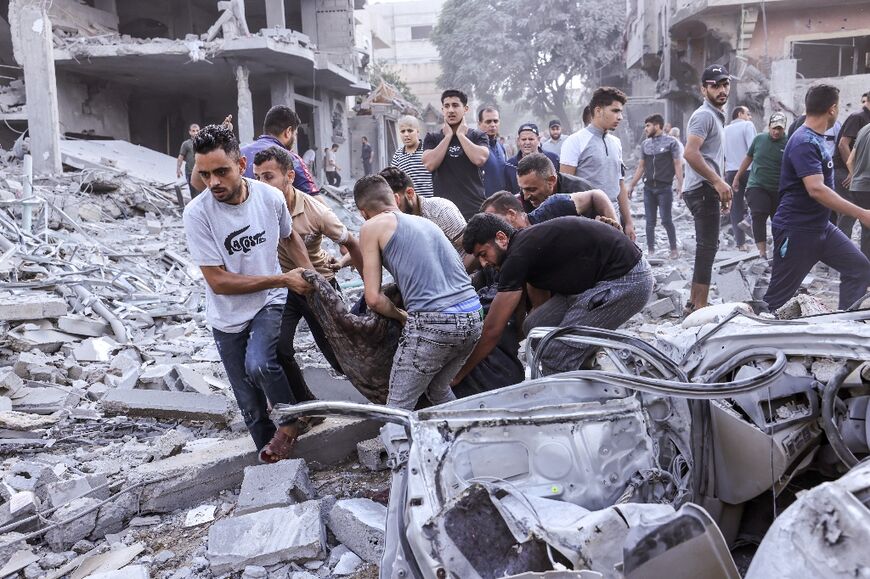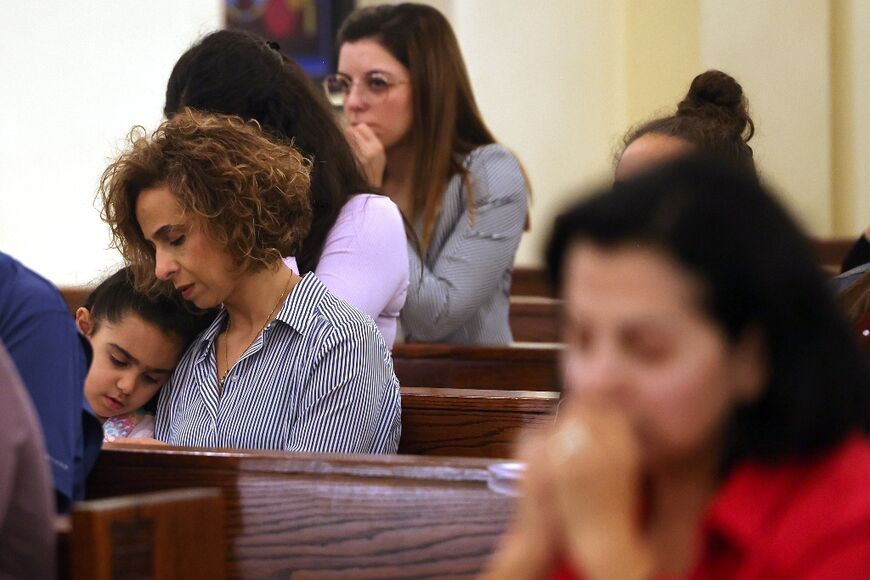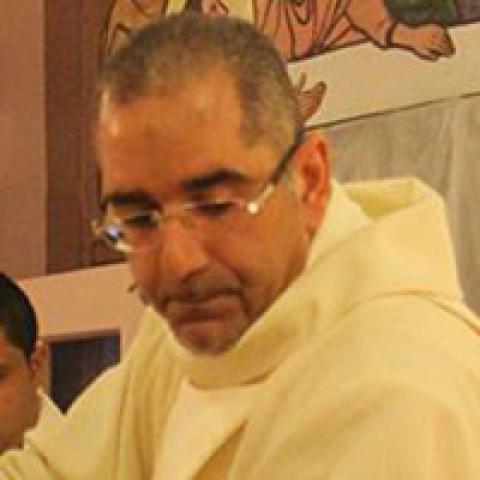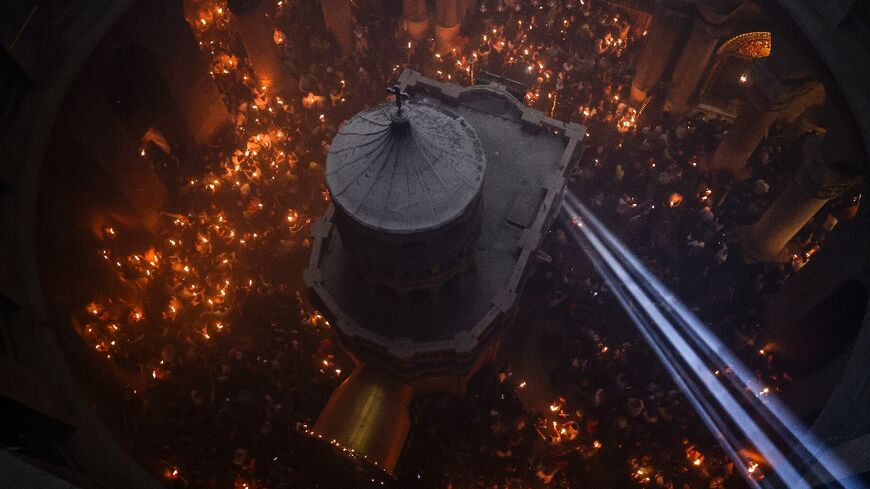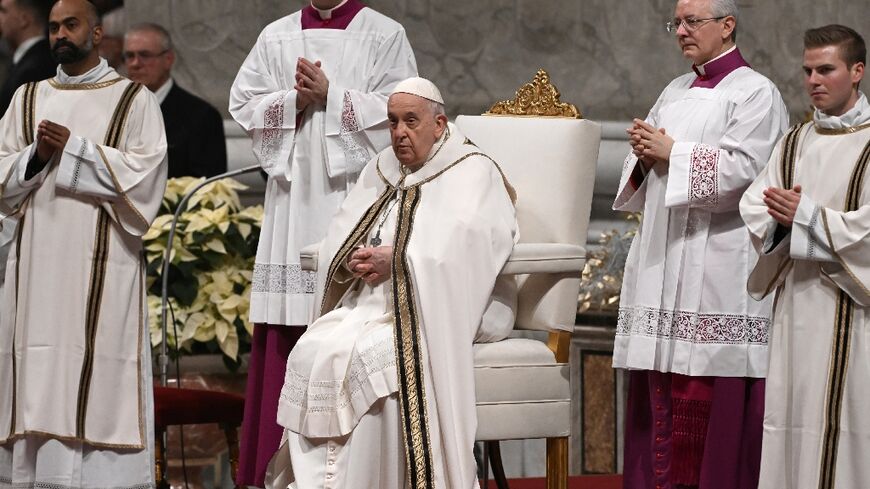Palestinian Christians mourn 'suffering' in Israel-Hamas war
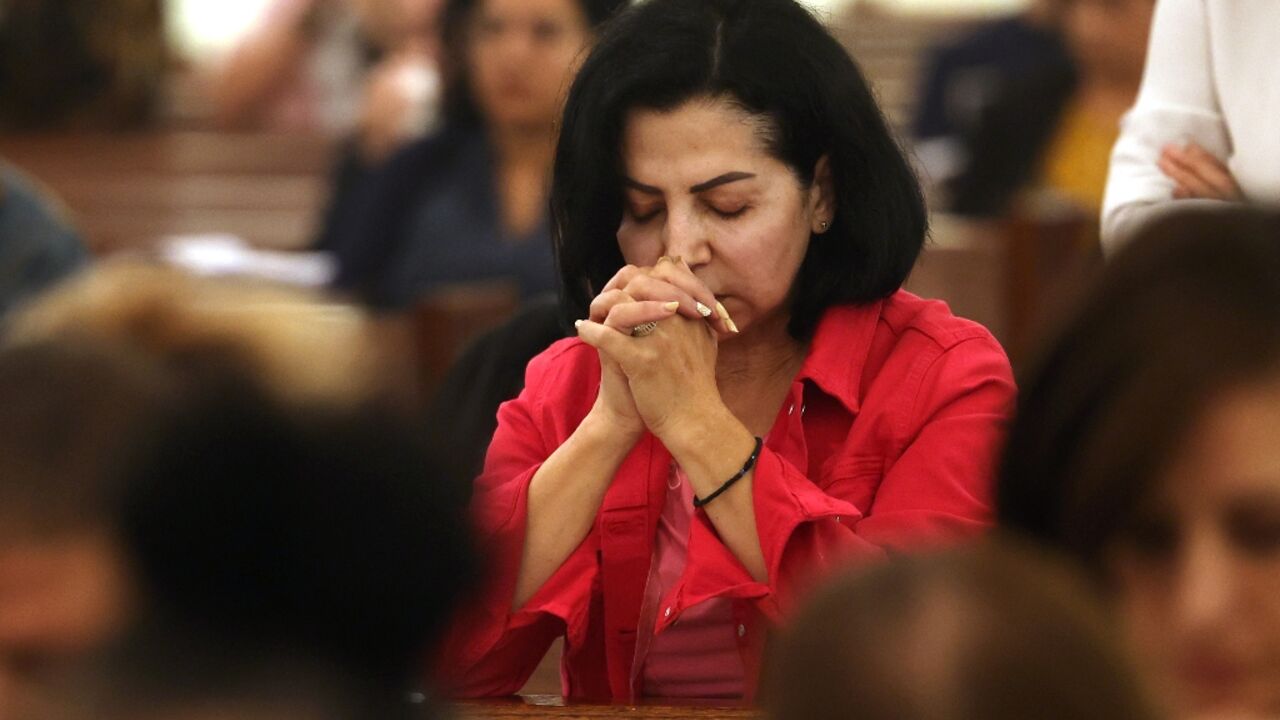
The mood was heavy among the Catholic parishioners as they left Saint James the Apostle church in Beit Hanina, a Palestinian neighbourhood in Israeli-annexed east Jerusalem.
With Israel again at war with Hamas, after the militant group's bloody attack on October 7, church-goers condemned the killings but did not hide their anger with Israel.
"I'm against killing. What Hamas did was terrible and I do not support it," said Maria, a 21-year-old travel agent who declined to be filmed or give her full name.
"But it's very complicated because the people in Gaza, they didn't do anything. They are just innocent there. It's not the country, it's not the people that did this. It's a group of people called Hamas that did that."
Hamas launched a brutal attack on southern Israel on October 7, in which hundreds of its militants killed more than 1,400 people and took at least 199 back to Gaza as hostages.
Since the attacks, Israel has rained a withering barrage of bombs on the Gaza Strip which has killed at least 3,000 people, according to Palestinian health officials.
The leaders of the various Christian denominations in Jerusalem said jointly on October 7 that they "unequivocally condemn any acts that target civilians, regardless of their nationality, ethnicity, or faith," and called "for an immediate cessation of violence".
They laid the blame for the violence on "prolonged political conflict and the lamentable absence of justice and respect for human rights."
In his sermon at Saint James the Apostle, the priest called for peace as soon as possible.
- 'Praying for peace' -
The few parishioners who were willing to appear on camera expressed similar sentiments.
"Everybody now is suffering and that's why we are here in church. We are praying for peace and we hope that peace will come one day," said Nakhla Bayda.
Away from the camera, however, several faithful interviewed by AFP were less diplomatic than their clergy -- many argued that Israel shares the bulk of the responsibility for the current situation.
The militants of Hamas are the "creation of Israel's unfairness," said Rania, a dark look on her face.
"They are living in an open-air prison and are the children of terrorism from Israelis against them," said the 50-year-old embassy employee.
"They (Israel) made them be violent... because they were suffocating them."
Starting in the 1980s, Israel allowed Hamas and other Islamist groups to thrive in the occupied territories in an attempt to counter the influence of Yasser Arafat's secular Palestine Liberation Organisation (PLO).
That changed in the 1990s after Israel was hit by a wave of deadly suicide bombings carried out by Palestinian Islamic Jihad, another movement that advocated armed struggle against Israel and rejected the peace process pursued by the PLO.
Today, Iran-backed Hamas is Israel's number one enemy.
- Fear of speaking out -
Israel's reprisals against Gaza, which have killed more than 700 children, outraged many in the congregation in Beit Hanina, but the fear of speaking out openly about the war was palpable.
"We want to express our feelings, but we can't, because we can just lose our jobs, our lives, our parents," said Maria.
Christian leaders in Jerusalem have said this year that increasing restrictions by Israeli authorities as well as hostility and attacks by Jews in the holy city put their communities at risk.
A church source in Jerusalem expressed concern for their fellow believers still in Gaza where several hundred people have taken refuge in two churches to escape Israeli bombing.
The local Christians, primarily Palestinian, are caught up in the Israel-Palestinian conflict like everyone else, but find themselves in a particularly delicate position as a tiny religious minority among Palestinians.
They represent no more than two per cent of the population of the Holy Land, according to the Latin Patriarchate.
"We are Christians, yes, and we are also Palestinians... it is our land and we feel the same as any Palestinian living here," said Rania.
"We can't believe what's happening in Gaza. And it really hurts us to see that all the sympathy is only with the Israelis and not with the Palestinians."


